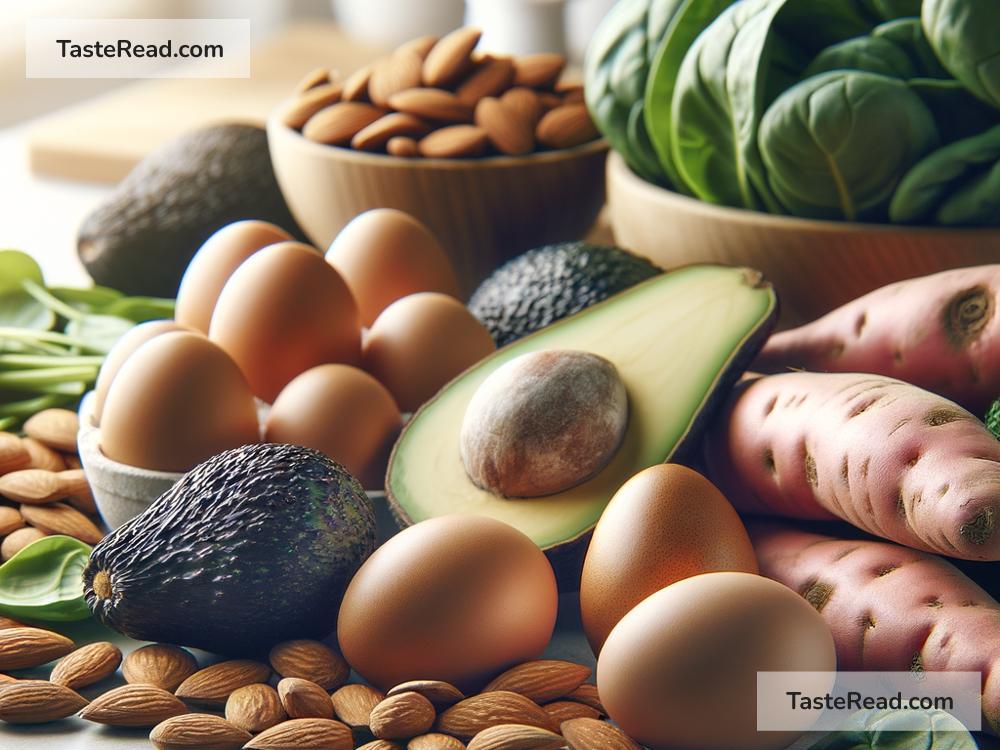Understanding the Role of Dietary Biotin in Health
When it comes to vitamins, we often hear about the big names like Vitamin C, Vitamin D, and Vitamin B12. But there’s one lesser-known vitamin that plays a key role in keeping our bodies healthy—biotin. You’ve probably seen it listed on supplement bottles or in health and beauty products, but what does biotin actually do? And why is it important for your health? In this blog, we’ll break down everything you need to know about the role of dietary biotin in simple terms.
What Is Biotin?
Biotin, also known as Vitamin B7, is one of the eight B-vitamins. These vitamins help turn the food you eat into energy. Biotin specifically works by assisting enzymes in breaking down fats, carbohydrates, and proteins in your body. Without biotin, your body wouldn’t be able to efficiently convert nutrients into fuel.
Unlike some vitamins that our bodies can produce, biotin is something we need to get from our diet. While it’s rare to have a deficiency of biotin, consuming enough of it is essential for overall health.
Why Is Biotin Important?
Biotin plays a number of important roles in the body. While it’s mainly known for supporting hair, skin, and nail health, it also has other crucial functions. Here’s a closer look:
-
Supports Healthy Hair, Skin, and Nails
Biotin is often called the “beauty vitamin” because it’s great for hair, skin, and nails. Many people take biotin supplements to help strengthen brittle nails, reduce hair thinning, or improve skin texture. Although there’s mixed scientific evidence about whether biotin truly works magic, it’s clear that having adequate levels of biotin is essential for the growth and maintenance of these areas. -
Helps Process Energy
Imagine eating a big meal but not being able to use it as fuel for energy. That’s where biotin comes in—it helps enzymes break down the food you eat into glucose, your body’s main energy source. Without enough biotin, your metabolism may struggle to work efficiently, leaving you feeling tired or sluggish. -
Contributes to Brain and Nervous System Health
Biotin supports brain function and the health of your nervous system by helping with the production of neurotransmitters—chemicals that allow nerve cells to communicate. This means biotin plays a role in mental clarity, mood, and overall cognitive health. -
Maintains a Healthy Pregnancy
Biotin is important for pregnant women, as it plays a role in the healthy development of the baby. Some pregnant women may become mildly deficient in biotin, so prenatal vitamins often contain this nutrient.
How Much Biotin Do You Need?
The amount of biotin you need depends on factors like age and health conditions. According to the National Institutes of Health, the recommended daily intake (RDI) is:
- Infants: 5–6 micrograms (mcg)
- Children (1–18 years): 8–25 mcg
- Adults: 30 mcg
- Pregnant women: 30 mcg
- Breastfeeding women: 35 mcg
Thankfully, meeting your biotin needs is usually easy because it’s found in many common foods. Most healthy people who eat a balanced diet typically get enough biotin without needing supplements.
What Foods Contain Biotin?
You can find biotin naturally in a variety of foods. Here are some foods that are rich in biotin:
- Eggs (especially the yolk)
- Nuts and seeds (like almonds, walnuts, and sunflower seeds)
- Whole grains
- Meat (such as liver and pork)
- Fish (like salmon)
- Dairy products (like milk, cheese, and yogurt)
- Vegetables (such as spinach, sweet potatoes, and broccoli)
- Fruits (like bananas and avocados)
Make sure to cook foods properly to retain their biotin content—raw egg whites, for example, contain a protein called avidin that can reduce your body’s ability to absorb biotin.
Signs of Biotin Deficiency
Biotin deficiency is rare, but it can happen in certain situations, such as prolonged use of antibiotics or in people with genetic conditions that affect biotin absorption. The following symptoms might indicate a deficiency:
- Thinning hair or hair loss
- Skin rashes (particularly around the eyes, nose, and mouth)
- Brittle nails
- Fatigue or lack of energy
- Depression or mood changes
- Numbness in limbs
If you experience these symptoms and suspect a biotin deficiency, consult your doctor before taking supplements.
Taking Biotin Supplements: What You Should Know
Biotin supplements are popular in the health and beauty industry, with claims that they improve hair growth and strengthen nails. While supplements can be helpful for people with a deficiency, most healthy people don’t need extra biotin beyond what they get from their diet. Too much biotin may interfere with certain lab tests, such as blood tests for thyroid function, so it’s important to talk to your doctor before starting a supplement.
Final Thoughts on Biotin and Your Health
Biotin is a small but mighty vitamin that supports many important processes in your body, from energy production to maintaining healthy hair, skin, and nails. Thankfully, it’s easy to get enough biotin through the food you eat, as long as you maintain a balanced diet with a mix of fruits, vegetables, whole grains, and proteins.
If you’re concerned about your biotin levels or are considering supplements, always consult a healthcare professional to make sure you’re meeting your nutritional needs safely. Remember, the key to good health isn’t just a single nutrient; it’s a combination of eating well, staying active, and giving your body what it needs to thrive.


